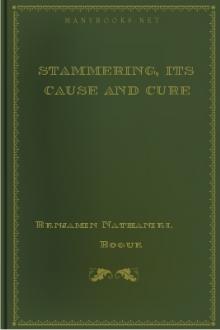The Jetsam - Lara Biyuts (best adventure books to read .TXT) 📗

- Author: Lara Biyuts
Book online «The Jetsam - Lara Biyuts (best adventure books to read .TXT) 📗». Author Lara Biyuts
Antinous the God. Antinous had been deified by the wisest men of his time, through proper ceremony, acting on Hadrian’s order. Hadrian was ahead of his times, in every period of history there are men like this. Leonardo Da Vinci, for example. The ancient Romans in general were advanced people. The Roman empire consisted of many intellectuals: scholars, writers, artists, rhetorician and architects, all inadvertently contributing to this race of man, advanced for their time. Hadrian was one of those men. He was an artist who founded a new religion; without him, we would not have the beautiful cultus.
The way Hadrian endeared people to his deceased lover strikes us for its grandiose scale of romantic gesture, but at the same time it portrays the man as helpless and vulnerable. Hadrian was not alone, he was surrounded by a team of starry-eyed intellectuals and aesthetes like he, and their attitude emasculated the image of Antinous—through the commissioning of marble sculptures full of voluptuousness and provoking ecstasy. We know much of Antinous, the god; we know little of Antinous, the boy. The Emperor himself volunteered to be Antinous’ historian, but this results in slight knowledge, heaped in speculation. Apparently, there was something to keep secret. Aside from the ecstatic veneration, there was also the real everyday life.
And so, he had been reared at the imperial court. He gave himself to his lord at any time of day or night. He received fondling and delights of a much older man, and he perfected himself in the art of love. Boys like he surrounded him, and the turbulent life of the court surrounded them. A life at any court does not distinguish with a great spirituality. The senators of ancient Rome, noblemen, courtiers, men of the Emperor, who himself was “the cunning and vulgar politician”, those were worldly persons, so the young boy could not acquire spirituality there. The pursuit of pleasure, cynicism, intrigues -- such are the distinctive characteristics of life at any royal court.
Hadrian had other boys at his disposal. But he chose Antinous alone. The reasons for the Emperor’s choice might be weighty, but we can only make suppositions.
Primarily, it was the boy’s physique and beauty that improved with age which drew Hadrian in. In ancient times, Greek boys did not cut their hair short till their first facial hair appeared; then, and only then, would they ask their father or patron to allow him to cut his hair. But there is no one portrait of Antinous with long hair. That rich, wavy hair that made him look like a lovely girl! Hadrian loved to play with it so much! But Hadrian permitted Antinous to cut his hair early, permitting at first request, and we can suppose that the boy’s request was met for the cost of a thousand caresses, proving the power he held over his lord.
It seems the boy could have what he wanted, having attracted the constancy of the Emperor? There, in the paedagogium, all the boys were good-looking; they knew how to love too. There must have been something special in the character of Antinous to have attracted Hadrian permanently. Maybe it was the special combination of a mental and physical health that makes a young boy a bearer of mystery and endows him with a magnetism -- to attract enkindling imagination, and to encourage the lust of men like Hadrian? Really, one’s attractive physique and attractiveness is much rarer than one’s wit, therefore it is more precious. Because everyone is clever in their own way, but not everyone is sexually attractive by nature.
It was not the “great road” which helped them to meet each other. They met by design rather than by chance. Within the Greek city of Claudiopolis, Antinous was considered one of the most beautiful boys, the most beautiful in Hadrian’s view it would seem. Transported to the Greek city Nicomedia, and to it’s the main district of Bithynia, Antinous would be one of the most beautiful boys of that city too. He was intended for Hadrian, knowing the Emperor’s tastes, the wealthy civic elders of the city chose the boy for his beauty was considered worthy of Caesar’s chambers. On the first day of Hadrian’s stay in Claudiopolis, the elders brought him to the Emperor. Probably, the young Antinous served as a cupbearer at Hadrian’s first dinner in the city. Though the boy may have caught Hadrian’s eye accidentally, it seems unlikely; his attention to the boy was, more likely, drawn deliberately. The boy was brought to him by hand, as a present. Antinous knew how he was to behave in the Emperor’s presence. How their first meeting went, one can only guess. Was there first meeting at a meal or in an organized meeting? The boy, who spoke Greek with an eastern pronunciation, would not have wowed the Emperor with dialogue, but rather beauty. What was first, a kiss or an eye? On first encounter did Hadrian suggest a half-playful request to undress? Antinous would have carried it out readily; without a false shame removing his tunic. Antinous was dazzled by the man beforehand; either by Hadrian himself or the splendor of his name and rank, regardless of why: both of them were dazzled by one another. It is my firm belief that before their romance fell into place, Hadrian spent some time contemplating the lithe well-groomed body of the 12-year-old boy, and most probably a part of the time he spent kneeling. The boy took this enamoring effect for love and left his home voluntary. This new found passion rarely stands the test of time, and what was considered love passes away. Perhaps later, in Rome, it happened to Antinous, but by then would have been too late. Sophistication and habit took the place of the passion; the knowledge he obtained, living at the imperial court and taught in the paedagogium, helped him mature. How his adolescence would be spent decided from the first time they saw each other: a kiss and eye, the love and enamoring.
Bedazzled by an emperor’s grandeur, such love hardly ever lasts. However, by the time their love affair tragically ended, the beautiful boy had turned into a beautiful young man with thoughts and interests concentrated upon the realm of his own pleasures -- Madame Yourcenar notes this in her book, and devotees of the Divine Boy should not see this as a shame. Such was the time; such was the setting. The boy had become an instrument for entertaining his lord, who in turn pampered Antinous, wishing to thank him for the enjoyment garnered from his young body. Hadrian hid the true nature of the boy in his usual passionate manner. That was the mystery of Antinous, which the grief-stricken Hadrian created. The mystery was the fact that the real Antinous could not commit suicide. What Hadrian hid was the mental and physical health of the boy. But in Madame Yourcenar’s text, the boy does commit suicide. As he is described above, we can understand this. The outstanding writer paints a vivid portrait of his character, in soft yet explicit tones, and then suddenly, she writes of this young person performing the uncharacteristic action of taking his own life. Antinous could not commit suicide, and his personality isn’t affected by that. Through this fact he has not ceased to be a god. Someone needs to right the fallacious points of this god. Write the story as the boy was, the boy who was unable to kill himself, because he was too young and loving life too much to die voluntarily. He wouldn’t have been drawn to death; he was in love with life. We have this god who used to be in love with carnal pleasures during his lifetime, the new and most beautiful of ancient gods. He must be written like this, the god of the Greeks and Romans during their period of decline. It has already been addressed that I do not consider Antinous decadent by virtue of his origins and young nature. Maybe if he was born in a palace, but he was not, he knew the difference between an ordinary citizenry life and a life of luxury, in the Emperor’s court. He did not want to die. He was a martyr, like any god who was killed. This conclusion rouses a whirl of responsive emotions and feelings in our minds, a desire to understand the truth, by means of rational guesswork, at least.
One more mystery of Antinous is his origin. Hadrian did not hide the origin, mentioning it in the epitaph on the obelisk, which he erected for his late lover, but, agonizingly, the place of birth is chipped off the stone. The original admittance suggests that the origin of Antinous was respectable. His enemies, who undoubtedly were much more numerous than his friends in his lifetime, who got more and more numerous and unappeasable after his death, and who no doubt damaged the obelisk, made his origin secret -- and the worst enemies of Antinous were the people who had come centuries after his death, Christian bigots.
The uncertainty of his origins leads in to another mystery surrounding the boy-god, was Antinous Hadrian’s illegitimate son? Shocking at first, it may seem, but it isn’t a ridiculous suggestion. The resemblance of the boy and the man supports the idea. Indeed, Hadrian could have illegitimately impregnated a woman, and then returned the boy to his father’s household, where Hadrian could give into his irrepressible inclination and form to develop an incestuous connection with his illegitimate son -- nothing here is out of the realm of plausibility. He could admire his boy, could dress the boy with silks, gold, flowers and jewellery, yet I have come to the conclusion that Antinous was not a son of Hadrian.
Hadrian’s demise was horrible. His mental and physical suffering was immeasurable. Yet I do not agree that there were only “a few moments of lucidity of his final months”. On the contrary, his mind was quite clear for he could compose such a chef-d’oeuvre as his last poem:
Animula vagula, blandula,
hospes comesque corporis,
quae nunc abibis in loca
pallidula, rigida, nudula,
nec, ut soles, dabis iocos. (Little spirit, gentle and wandering, companion and guest of the





Comments (0)